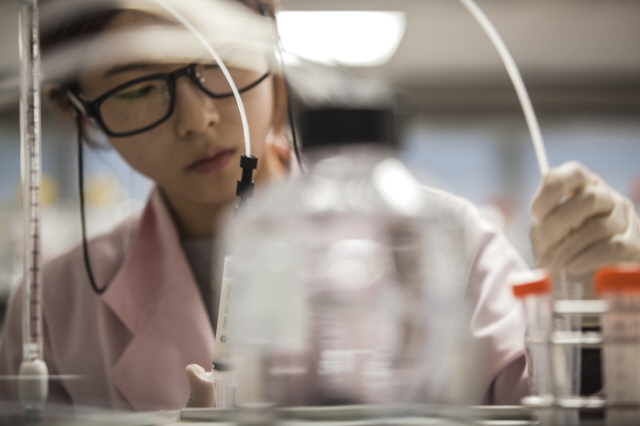Samsung Bioepis begins phase 3 clinical trial of Prolia biosimilar
By Lim Jeong-yeoPublished : Dec. 15, 2020 - 13:23

Samsung Bioepis has begun the final stage clinical trial of postmenopausal osteoporosis treatment SB16, the company said Tuesday.
SB16 (denosumab) is a biosimilar referencing Amgen’s Prolia, whose global annual sales marked over 3 trillion won ($2.74 billion) in 2019.
The phase 3 clinical trial of SB16 is anticipated to be completed by March 2023, just in time for the company to derive analysis and push for commercialization of the drug by Prolia’s patent expiration in major markets in 2025.
Prolia’s patent expires on June 25, 2022 in Europe, except for France, Italy, Spain and the UK, where it expires in 2025. It will expire in the US on Feb. 19, 2025.
In the phase 3 clinical study, Samsung Bioepis will follow 432 postmenopausal osteoporosis patients in six nations, to compare the SB16’s efficacy, safety, pharmacokinetics and pharmacodynamics against the original Prolia. The study’s design is randomized, double-blind and multicenter.
Candidates eligible for enrollment are women aged between 55 and 80 years old, for whom the bone matter strengthening substance will be administered every six months subcutaneously. All drugs can have varying degrees of side effects -- the most commonly known side effects of Prolia are pain in the back, arms and legs, high cholesterol, muscle pain and bladder infection.
As of December 2020, Samsung Bioepis has three biosimilar candidates -- SB12 (eculizumab), SB15 (aflibercept) and SB16 (denosumab) -- in phase 3 clinical development.
Samsung Bioepis was established in 2012 as a joint venture between Samsung Biologics and US’ Biogen.
By Lim Jeong-yeo (kaylalim@heraldcorp.com)
SB16 (denosumab) is a biosimilar referencing Amgen’s Prolia, whose global annual sales marked over 3 trillion won ($2.74 billion) in 2019.
The phase 3 clinical trial of SB16 is anticipated to be completed by March 2023, just in time for the company to derive analysis and push for commercialization of the drug by Prolia’s patent expiration in major markets in 2025.
Prolia’s patent expires on June 25, 2022 in Europe, except for France, Italy, Spain and the UK, where it expires in 2025. It will expire in the US on Feb. 19, 2025.
In the phase 3 clinical study, Samsung Bioepis will follow 432 postmenopausal osteoporosis patients in six nations, to compare the SB16’s efficacy, safety, pharmacokinetics and pharmacodynamics against the original Prolia. The study’s design is randomized, double-blind and multicenter.
Candidates eligible for enrollment are women aged between 55 and 80 years old, for whom the bone matter strengthening substance will be administered every six months subcutaneously. All drugs can have varying degrees of side effects -- the most commonly known side effects of Prolia are pain in the back, arms and legs, high cholesterol, muscle pain and bladder infection.
As of December 2020, Samsung Bioepis has three biosimilar candidates -- SB12 (eculizumab), SB15 (aflibercept) and SB16 (denosumab) -- in phase 3 clinical development.
Samsung Bioepis was established in 2012 as a joint venture between Samsung Biologics and US’ Biogen.
By Lim Jeong-yeo (kaylalim@heraldcorp.com)


















![[Today’s K-pop] Treasure to publish magazine for debut anniversary](http://res.heraldm.com/phpwas/restmb_idxmake.php?idx=642&simg=/content/image/2024/07/26/20240726050551_0.jpg&u=)